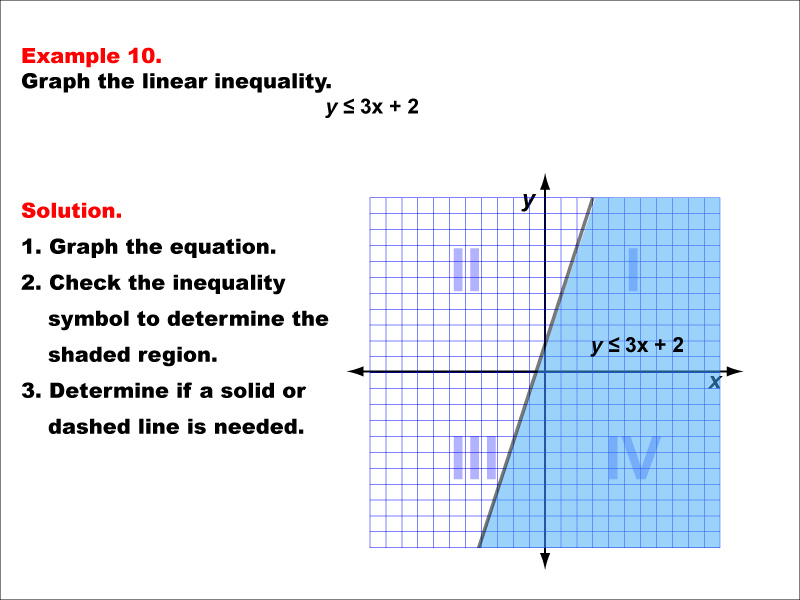
Display Title
Math Example--Inequalities-- Linear Inequalities: Example 10
Display Title
Math Example--Inequalities-- Linear Inequalities: Example 10

Topic
Inequalities
Description
This example illustrates the graphing of the linear inequality y ≤ 3x + 2. The graph features a solid line representing the equation y = 3x + 2, with the area below the line shaded to indicate the region where the inequality is satisfied. The solid line signifies that points on the line are included in the solution set.
Linear inequalities are a fundamental concept in algebra, building upon students' understanding of linear equations and expanding it to include regions of the coordinate plane. This collection of examples aids in teaching this topic by providing visual representations of various inequalities, helping students grasp how different inequality symbols and equations translate into graphical form.
The importance of multiple worked-out examples cannot be overstated in helping students fully comprehend linear inequalities. Each example in this set highlights a different aspect of inequalities, allowing students to recognize patterns and develop a thorough understanding of how to graph and interpret these mathematical relationships.
Teacher's Script: Now, let's look at the inequality y ≤ 3x + 2. Notice how we first graph the line y = 3x + 2, then shade the region below it. The solid line shows that points on the line are part of our solution. Can you explain why we shade below the line this time? How does this example differ from the previous ones we've seen with similar inequality symbols?
For a complete collection of math examples related to Inequalities click on this link: Math Examples: Inequalities Collection.
| Common Core Standards | CCSS.MATH.CONTENT.6.EE.B.5, CCSS.MATH.CONTENT.7.EE.B.4.B, CCSS.MATH.CONTENT.HSA.REI.D.12 |
|---|---|
| Grade Range | 6 - 10 |
| Curriculum Nodes |
Algebra • Expressions, Equations, and Inequalities • Inequalities |
| Copyright Year | 2013 |
| Keywords | linear equations, inequalities |